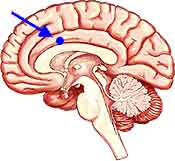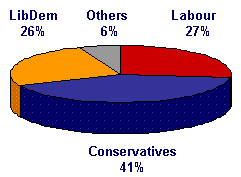Phillips on Barack Obama
I notice a lot of people are visiting this site by searching for information about Barack Obama. You might therefore be interested in a piece in the Spectator by Melanie Phillips entitled Princess Obama. Here are the central paragraphs:
Welcome to Planet Diana. It was only with the death of the People’s Princess that the extent of Britain’s transformation from a country of reason, intelligence, stoicism, self-restraint and responsibility into a land of credulousness, emotional incontinence, sentimentality, irresponsibility and self-obsession became shatteringly apparent. Princess Diana was an icon of the new Britain because she embodied precisely those latter characteristics.
It became clear that politicians could score remarkable short-term success if they too got in touch with their inner trauma and felt everyone else’s pain. Bill Clinton (hideous irony for Hillary) was the first to realise this and made it his political signature. Tony Blair, whose lip periodically quivered with precision timing, had it in spades. David Cameron has it; so too does Obama.
The effect is electric, but short-lived. That is because Dianafication is essentially empty, amoral, untruthful and manipulative; eventually voters see through it and realise they have been played for suckers. But while it lasts -- and it creates presidents and prime ministers -- reason doesn’t get a look in. Warm fuzzy feelings win hands down because they anaesthetise reality and blank out altogether those difficult issues which require difficult decisions. Obama appears to be on the wrong side of just about every important issue going; indeed, were he to be elected president he would be a danger to the free world. But hey – the guy makes people feel good about themselves; he stands for hope, love, reconciliation, youthfulness and fairies at the bottom of the garden.
 The Shadow Foreign Secretary has endorsed
The Shadow Foreign Secretary has endorsed  A brain scan might one day predict your voting patterns. That is the implication of a study that found different brain activity among liberals and conservatives asked to carry out a simple button-pushing test. The study implies that our political diversity may be the result of neurological differences.
A brain scan might one day predict your voting patterns. That is the implication of a study that found different brain activity among liberals and conservatives asked to carry out a simple button-pushing test. The study implies that our political diversity may be the result of neurological differences.![PJD supporters [AFP]](http://english.aljazeera.net/mritems/images/2007/9/3/1_227804_1_5.jpg) the conservative Istiqlal (Independence) party appears to have unexpectedly beaten the Islamist Justice and Development Party (PJD). Many had feared that the PJD would win and will no doubt be relieved by this result. Yet, as an article in
the conservative Istiqlal (Independence) party appears to have unexpectedly beaten the Islamist Justice and Development Party (PJD). Many had feared that the PJD would win and will no doubt be relieved by this result. Yet, as an article in  Therefore, if we wish to see democracy spread, we are going to have to engage with political Islam. Recalling how Abraham Lincoln once said, "The best way to overcome an enemy is to make him your friend," maybe Osama Bin Laden is halfway right when he invites us to "embrace Islam." However, we do not need to convert to his radicalism. Rather, perhaps we need to embrace the Islamist moderates in a democratic hug.
Therefore, if we wish to see democracy spread, we are going to have to engage with political Islam. Recalling how Abraham Lincoln once said, "The best way to overcome an enemy is to make him your friend," maybe Osama Bin Laden is halfway right when he invites us to "embrace Islam." However, we do not need to convert to his radicalism. Rather, perhaps we need to embrace the Islamist moderates in a democratic hug. I think the
I think the 
 The BBC's Nick Robinson is right when he says it's been a great few days for
The BBC's Nick Robinson is right when he says it's been a great few days for  The Spectator has a thought-provoking piece arguing that "a centrist Democrat such as Hillary Clinton has more in common with Cameron’s Tories than any Republican" and therefore
The Spectator has a thought-provoking piece arguing that "a centrist Democrat such as Hillary Clinton has more in common with Cameron’s Tories than any Republican" and therefore  I don't know if anyone else has commented on this but it's been bugging me since 10pm last night and I can't find anything on any of the other likely political blogs (please correct if I'm missing it somewhere): What happened to the customary BBC exit poll? Normally, whenever polls close, the BBC is the first to predict the eventual result based on its exit poll. Did they really not conduct one (if so, why not)? Or was the result so bad for Labour that they decided not to reveal the results and hope that over a 24 hours period of results trickling in, we would all get bored and not notice that the night had been a veritable disaster for Labour and an
I don't know if anyone else has commented on this but it's been bugging me since 10pm last night and I can't find anything on any of the other likely political blogs (please correct if I'm missing it somewhere): What happened to the customary BBC exit poll? Normally, whenever polls close, the BBC is the first to predict the eventual result based on its exit poll. Did they really not conduct one (if so, why not)? Or was the result so bad for Labour that they decided not to reveal the results and hope that over a 24 hours period of results trickling in, we would all get bored and not notice that the night had been a veritable disaster for Labour and an 

